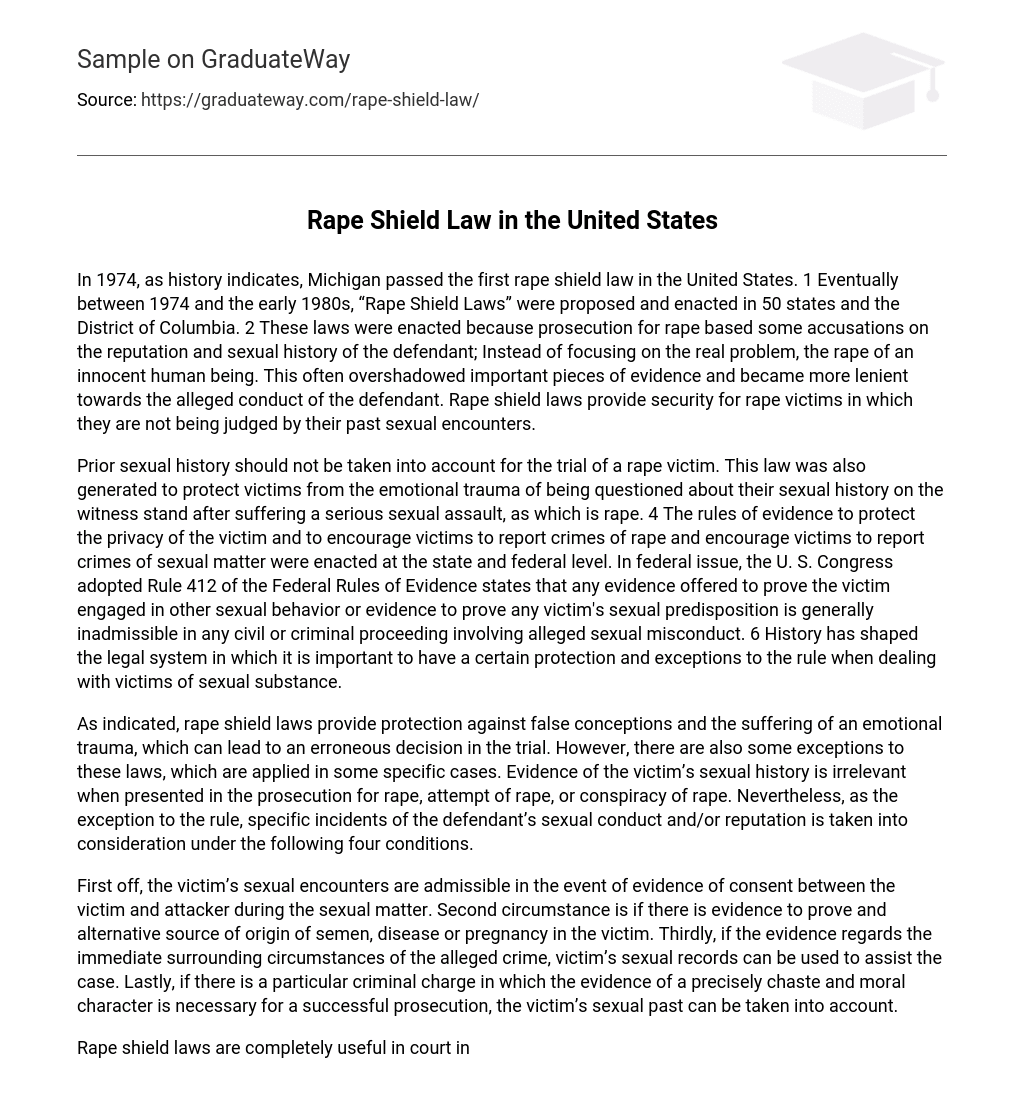In 1974, as history indicates, Michigan passed the first rape shield law in the United States. 1 Eventually between 1974 and the early 1980s, “Rape Shield Laws” were proposed and enacted in 50 states and the District of Columbia. 2 These laws were enacted because prosecution for rape based some accusations on the reputation and sexual history of the defendant; Instead of focusing on the real problem, the rape of an innocent human being. This often overshadowed important pieces of evidence and became more lenient towards the alleged conduct of the defendant. Rape shield laws provide security for rape victims in which they are not being judged by their past sexual encounters.
Prior sexual history should not be taken into account for the trial of a rape victim. This law was also generated to protect victims from the emotional trauma of being questioned about their sexual history on the witness stand after suffering a serious sexual assault, as which is rape. 4 The rules of evidence to protect the privacy of the victim and to encourage victims to report crimes of rape and encourage victims to report crimes of sexual matter were enacted at the state and federal level. In federal issue, the U. S. Congress adopted Rule 412 of the Federal Rules of Evidence states that any evidence offered to prove the victim engaged in other sexual behavior or evidence to prove any victim’s sexual predisposition is generally inadmissible in any civil or criminal proceeding involving alleged sexual misconduct. 6 History has shaped the legal system in which it is important to have a certain protection and exceptions to the rule when dealing with victims of sexual substance.
As indicated, rape shield laws provide protection against false conceptions and the suffering of an emotional trauma, which can lead to an erroneous decision in the trial. However, there are also some exceptions to these laws, which are applied in some specific cases. Evidence of the victim’s sexual history is irrelevant when presented in the prosecution for rape, attempt of rape, or conspiracy of rape. Nevertheless, as the exception to the rule, specific incidents of the defendant’s sexual conduct and/or reputation is taken into consideration under the following four conditions.
First off, the victim’s sexual encounters are admissible in the event of evidence of consent between the victim and attacker during the sexual matter. Second circumstance is if there is evidence to prove and alternative source of origin of semen, disease or pregnancy in the victim. Thirdly, if the evidence regards the immediate surrounding circumstances of the alleged crime, victim’s sexual records can be used to assist the case. Lastly, if there is a particular criminal charge in which the evidence of a precisely chaste and moral character is necessary for a successful prosecution, the victim’s sexual past can be taken into account.
Rape shield laws are completely useful in court in protecting rape victims. A victim’s prior sexual history and/ or reputation should not be taken into account when this person has been sexually assault against his/her will. However, I believe when and if necessary, a victim’s sexual past/present should only be taken into consideration in the event of facilitating the truthful decision of the trial. The credibility of the case should not depend on a moral ideal for the victim, but on facts and evidence.





